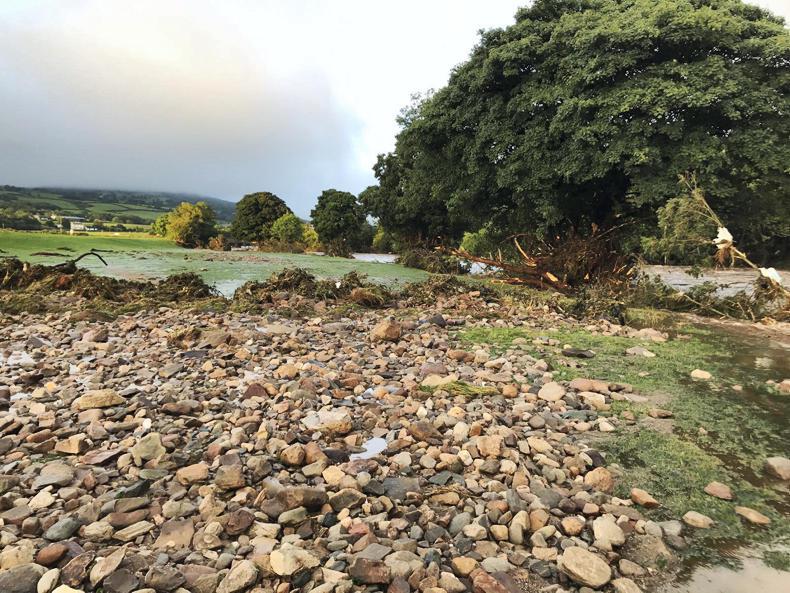For those farmers badly affected by heavy rain and floods in Co Tyrone at the end of August, it must be very frustrating to see how quickly authorities across the border in Donegal have moved to put a scheme in place to help farmers there. A maximum payment of up to €15,000 per farmer is available to help cover the cost of losses of livestock, fodder and also help with the clean-up costs of land, repairs to fences and removal of debris. In some situations, the money available probably falls well short of the actual losses incurred, but it is still a significant contribution, expected to come by the end of the year.
In NI, there has been plenty of useful advice on offer, and a dedicated campaign to make sure farmers got force majeure forms into the Department so as to protect basic payments coming later this year.
But with no functioning executive at Stormont, a hardship scheme that will help these farms re-build has yet to emerge. It is an issue that must not be forgotten.
These farms need financial help, just as occurred in the past after floods in 2008 and snow in 2013.
A potential hardship scheme can now be added to a growing list of issues that are effectively in-limbo since Stormont collapsed earlier this year. That includes progress with bovine TB eradication, a new land management strategy, a second tranche of both tiers of the capital grant element of the Farm Business Improvement Scheme, and, most recently, the lack of clarity around how to deal with ammonia emissions.
Without ministerial direction, our senior civil servants appear to be completely hamstrung. It is high time that something changes, and, no doubt, the blame for the current situation lies firmly within the political process.
But surely it would be better for civil servants across departments to start making decisions and risk getting some wrong, than make no decisions at all.






 This is a subscriber-only article
This is a subscriber-only article









SHARING OPTIONS: